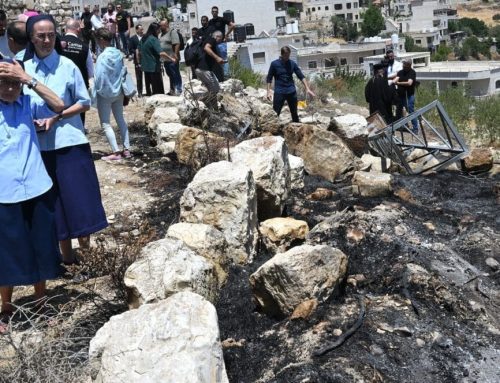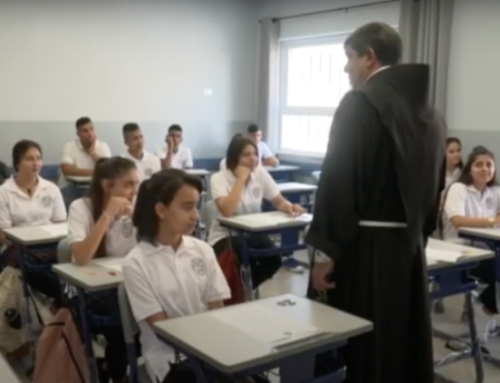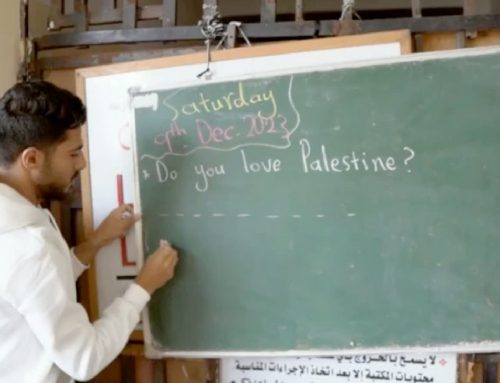Following a temporary ceasefire agreement between Israel and Hamas, the U.S. bishops’ international humanitarian aid agency is ramping up its humanitarian assistance to Gaza with the hope that the ceasefire agreement will last indefinitely.
Bill O’Keefe, Catholic Relief Services executive vice president for mission and mobilization, told Crux that the organization is assembling trucks of supplies in Egypt. Meanwhile, CRS staff in Gaza are preparing to receive the trucks and planning how to distribute those resources safely.
The news comes after Israel and Hamas agreed to a four-day ceasefire in the war in Gaza on Nov. 22. In the deal, 50 Israeli hostages captured by Hamas during its Oct. 7 terrorist attack will be released, including women and children, in exchange for what Hamas said would be about 150 Palestinian prisoners.
Israel Prime Minister Benjamin Netanyahu said Israel would resume the war after the truce and continue its fight to destroy Hamas and release the remaining hostages. However, Israel also said that the truce would be extended an extra day for every 10 hostages freed by Hamas. The ceasefire goes into effect Nov. 23. The deal was brokered by Qatar, the U.S., and Egypt.
O’Keefe applauded the deal, as CRS has long called for a cessation of violence.
“That level of activity is good news, and we are actively and urgently ramping up our humanitarian assistance to take advantage of this pause however long it lasts,” O’Keefe said. “I hope it will last indefinitely, but we are taking advantage of it to meet as many needs of vulnerable Palestinians as we possibly can.”
O’Keefe added that CRS continues to pray for the release of hostages, and for the safety of civilians in harm’s way.
Johnny Zokovitch, executive director of Pax Christi USA, a peace advocacy organization, similarly expressed hope that the deal is an opportunity for a permanent ceasefire.
“Pax Christi USA welcomes any cessation of hostilities and the return of hostages and political prisoners,” Zokovitch told Crux in a statement. “We pray that this is an opportunity for a permanent ceasefire.”
The deal comes at a time when, according to Palestinian health authorities, more than 11,000 Palestinians have been killed in the war, stemming from Hamas’ Oct. 7 terrorist attack on Israel where at least 1,200 people were killed, and another approximately 240 were abducted.
CRS has 52 staff members in Gaza, some of whom have lost family members in the war, according to O’Keefe.
The latest he has heard from the staff in Gaza is that the north of Gaza is “effectively destroyed,” with no water, food, fuel, or electricity available. In south Gaza, where people were encouraged to flee, bombing continued until the ceasefire, O’Keefe said.
O’Keefe also noted that many people who fled the north as well as some people in the south have sought refuge in schools, United Nations compounds, which are “unbelievably crowded.”
“There are hundreds of people for every toilet. There are people sleeping outside. There are people without mattresses and without safe shelter with nowhere to go right now,” O’Keefe explained. “A ceasefire will hopefully allow at least some of those people to find and be provided with a better temporary situation.”
In a Nov. 22 statement, President Joe Biden applauded the deal, adding that “we pray that this is an opportunity for a permanent ceasefire.” He also noted that Netanyahu has signaled a commitment to “supporting an extended pause to ensure this deal can be fully carried out and to ensure the provision of additional humanitarian assistance to alleviate the suffering of innocent Palestinian families in Gaza.”
O’Keefe said in the long term, CRS has long supported and continues to support a two-state solution. In the short and medium term, he said the hope is that negotiations will continue that will lead to a cessation of violence and the ability for Palestinians and Israelis to live together in peace.
“We’re not in these negotiations, but we do see the impact of war on innocent people and that’s why we’re calling for a cessation of violence,” O’Keefe said.
By John Lavenburg






